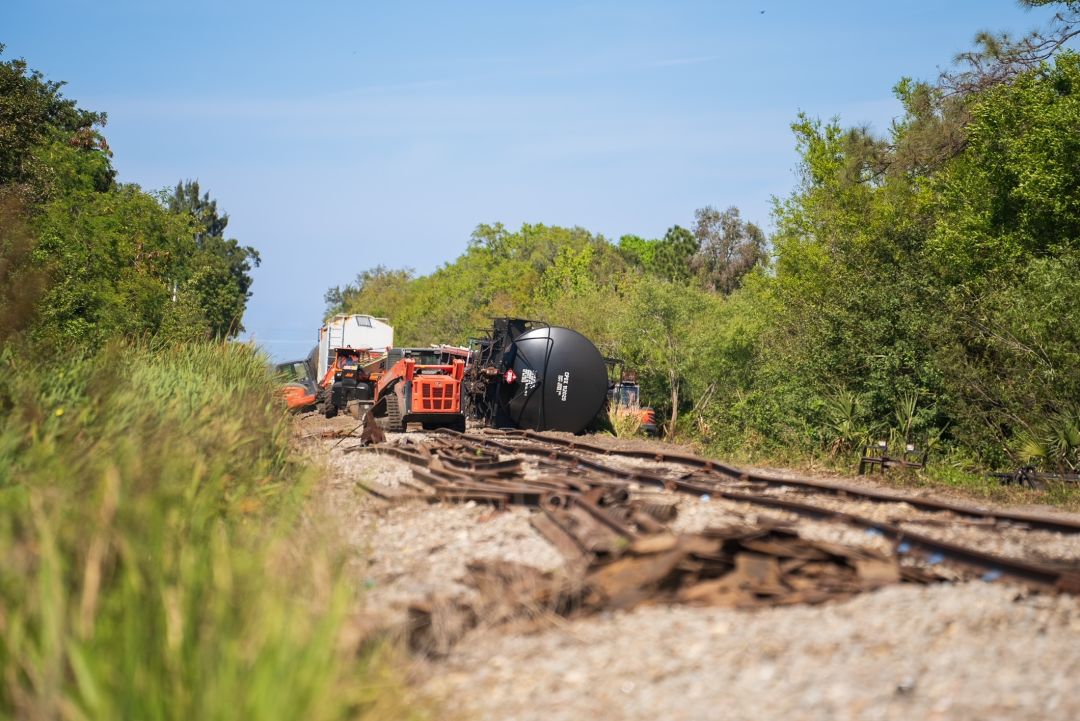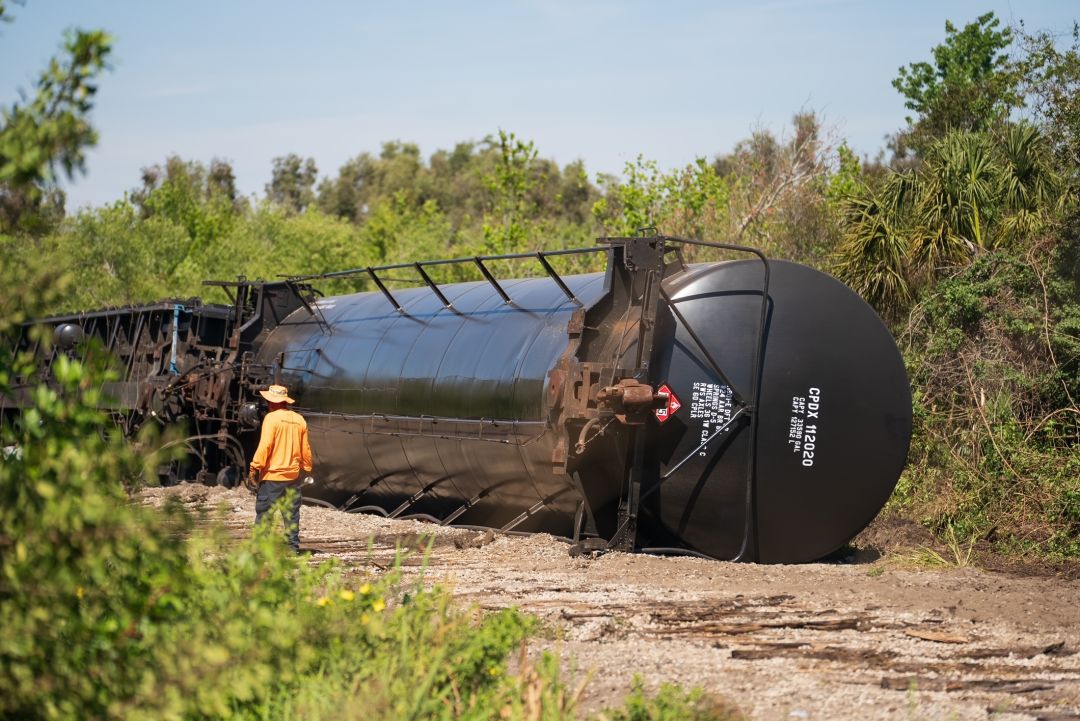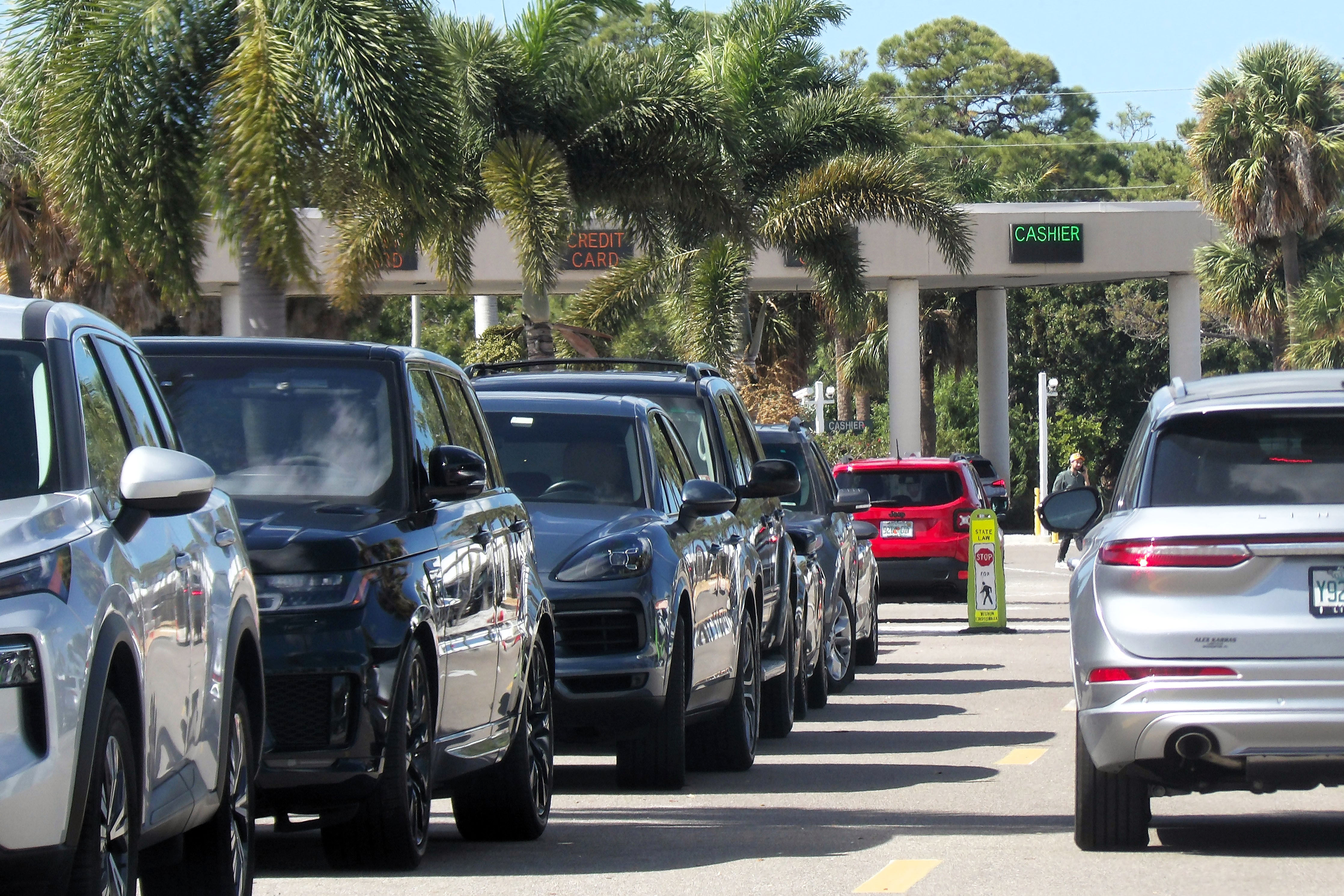A Train Carrying 30,000 Gallons of Propane Derailed Near SRQ Airport on Tuesday

A train carrying 30,000 gallons of propane derailed near Sarasota-Bradenton International Airport on Tuesday.
Image: Paul Huh
On Tuesday morning, a south-bound Seminole Gulf Railway freight train carrying 30,000 gallons of propane derailed just north of the Sarasota-Manatee airport. Sarasota is now part of a growing list of areas in the United States where trains carrying hazardous materials have wrecked, bringing increased scrutiny to our transportation infrastructure.
Unlike the derailment and release of vinyl chloride in East Palestine, Ohio, which some are calling the “Ohio Chernobyl,” there are no current reports of leakage at the Bradenton site. But it will take many days to clear the tracks so they're operable again.
Speaking to the Tampa Bay Times, Southern Manatee Fire Rescue Chief Robert Bounds said, “We’re at a stalemate right now. Until [Seminole Gulf Railway] gets their crews here and they make a game plan about how they want to tackle this, there’s no guesstimate on how long the scene will last.”
Right now, the cause of the derailment is unknown, which leaves us with many questions. Are derailments frequent, but we remain unaware? Are we only just now paying attention because of the derailment in Ohio? How many other derailments have occurred in our area over the years? Did the train have updated electric breaks, or did it rely on antiquated air-breaking equipment? Seminole Gulf Railway, which operated the freight train, did not respond to our calls in time for publication.
What we do know, however, is that the freight train was minimally staffed. These were the same conditions under which the East Palestine train derailed.
The lack of train staff is a consequence of industry lobbyists persuading the federal government to deregulate rail transportation standards. These deregulation efforts began with the Obama administration, heightened under Trump and are continuing well into Biden’s first term in office. Just last year, the Biden administration made it illegal for rail workers to strike for better pay and conditions.
According to a report by the publication The Lever, industry lobbying efforts have eliminated thousands of rail workers jobs since 2017. The Lever found that "more than 22 percent of the jobs at railroads Union Pacific, CSX and Norfolk Southern have been eliminated since 2017, when CSX implemented a cost-cutting system called Precision Scheduled Railroading that most other U.S. railroads later copied."

Right now, the cause of the derailment is unknown.
Image: Paul Huh
“We may have dodged a bullet because the propane tanks have not exploded,” says Glenn Compton, chairman of ManaSota-88, an environmental advocacy organization. “But we are not out of the woods yet of what could be a potentially dangerous situation.”
Compton says he’s been troubled for years about the hazardous material that is shipped into and around the Manatee County area. “You always have to be concerned when you have populated areas adjacent to industries that deal with hazardous chemicals,” he says. He points to Tropicana, where thousands of pounds of ammonia are transported into its facilities. According to the EPA, in 2021, 17,676 pounds of ammonia were brought into the Tropicana facility, which is surrounded by residential neighborhoods.
Jason Huh's local supplement company, STEEL, sits right next to the tracks, about 1,000 feet from where the derailment occurred.
“Nobody told us anything,” Huh says. “I’m just finding out from you.” He said he understands that local authorities don’t want to alarm people and cause panic, but he would still like to know about a derailment of hazardous material right outside his front door.
“People who are adjunct to shipments that deal with hazardous chemicals should have some form of notification that these things are being brought into their neighborhoods,” Compton says. “There should also be some kind of exit plan in case of an emergency.” As far as he knows, neither of these exist.



